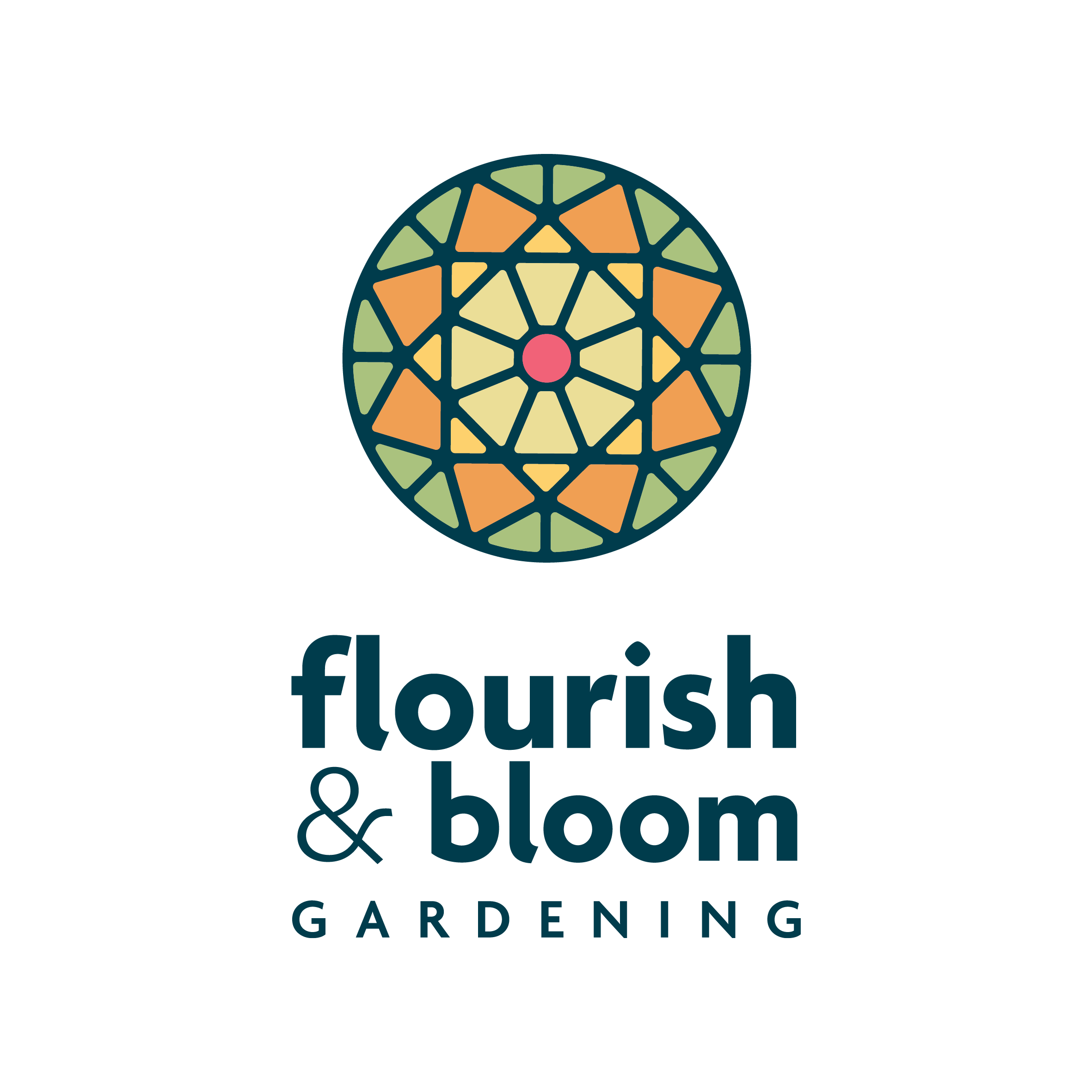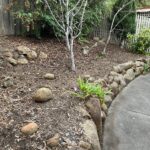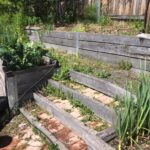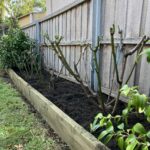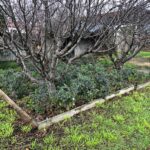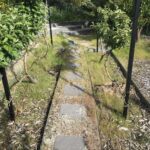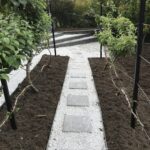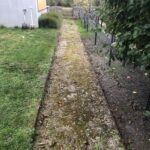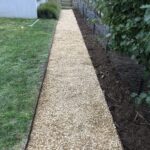We offer a Variety of Gardening Services:
Weeds can be a nuisance in any garden, competing with your plants for space, moisture, and nutrients.
Our team of experts recommends using non-toxic and eco-friendly methods to manage weeds. We do not use any harmful weed-killing sprays. Instead, we suggest pulling out the entire weed from the root up to effectively manage weeds.
We also offer a layer of organic mulch on your garden beds, which not only makes it harder for weeds to grow but also enriches the soil and retains moisture.
Weeds can be a nuisance in any garden, competing with (more desirable) plants for space, moisture, and nutrients.
The best way to effectively manage weeds is to use non-chemical methods that are safe for the environment and pets and do not harm desirable plants. Here are some non-chemical methods you can use to control weeds in your garden:
- Mulch: Apply a layer of organic mulch, such as gum bark (for garden beds) or straw (for veggie gardens), to suppress weed growth and conserve moisture;
- Hand Weeding: Remove weeds by hand, making sure to pull out the entire root system;
- Smothering Weeds: Cover weeds with newspapers or cardboard to block sunlight and kill the weeds;
- Ground Covers: Plant ground covers, such as myoporum or creeping thyme, to suppress weed growth.
Choosing the right mulch for your garden depends on its function and aesthetic. We can help you:
- Choose the Right Mulch for your Garden: We will consider your specific needs and recommend the most suitable mulch for your plants and soil type.
- Calculate the Amount of Mulch needed: We will help you determine the right quantity of mulch to cover your garden beds effectively.
- Organise Mulch Delivery: Our team can arrange for the timely delivery of your chosen mulch, ensuring a seamless experience for you.
- Apply the Mulch on the Garden Beds: We will take care of spreading the mulch evenly on your garden beds, saving you time and effort.
By incorporating mulch into your gardening routine, you can effectively suppress weeds, improve soil health, and conserve moisture, leading to a more vibrant and thriving garden.
We prioritise best mowing practices to ensure that your lawn remains beautiful and healthy. Here’s how we apply these practices:
- Regular Mowing: we recommend a regular routine for mowing to keep your lawn beautiful and healthy. In spring and summer, we suggest mowing every 2-3 weeks and in autumn and winter, we recommend mowing every 4-6 weeks;
- Proper Mowing Height: We set our mower blades at the proper height;
- Sharp Mower Blades: We ensure that our mower blades are sharp to make clean cuts and avoid tearing the grass, which can lead to disease and stress;
- Varying Mowing Patterns: We change the direction of mowing frequently to promote upright shoot growth and prevent continuous scalping and soil compaction.
By following these best mowing practices, we can help create a lush, dense lawn that is naturally resistant to drought and weeds, contributing to a healthy and attractive outdoor space for you to enjoy.
We offer your choice of regular or one-off mowing services. Our lawn care services include mowing the lawn, edging along garden beds and concrete surfaces, and cleaning up.
Hedge trimming is an essential aspect of maintaining a garden’s appearance and promoting the health of the hedges. Here are some reasons why hedge trimming enhances the overall look of a garden:
- Maintains the Health of the Hedges: Trimming helps remove dead or excess branches and leaves, which can make hedges look shabby and invite pests and diseases. By trimming regularly, you can help keep your hedges healthy and looking neat;
- Promotes New Growth: Hedge trimming encourages the hedge to stimulate new growth, making it grow healthier and stronger than before;
- Improves Leaf Growth and Flower Yield: Trimming removes old or infected deadwood, improves the health of the plant, and increases sunlight delivery to newer shoots and shrubs. This, in turn, improves leaf growth and flower yield, making the hedges more visually appealing;
- Prevents Overgrowth: Hedge trimming helps prevent shrubbery from growing too high or wide, keeping the hedges in check and maintaining a neat appearance;
- Creates an Aesthetically Pleasing Finish: A well-manicured hedge can be incredibly impactful and impressive to visitors or passers-by, making the garden more visually appealing;
- Enhances Privacy and Security: Regular trimming helps keep the hedge dense, preventing neighbours from looking through the gaps and making your property more secure.
To achieve the best results, it is recommended to trim hedges at least twice a year, depending on the type of hedge. Regular maintenance and expert trimming can help you enjoy the benefits of well-maintained hedges.
1) Regular Tree Pruning
Trees are pruned to improve their appearance, help them reach their full potential, and live longer. Pruning trees in a specific way allows for better control of their size and shape. If trees are not pruned regularly, they may become misshapen or grow too large.
It is also important to remove any dead, dying, or diseased branches, as well as branches that rub against each other. These can pose a danger to the tree, people, or property.
2) Fruit Tree Pruning
Pruning fruit trees is essential for their health and to enhance the quantity and quality of the fruits they bear. There are two main types of fruit tree pruning: winter pruning and summer pruning.
- Winter Pruning: Pruning fruit trees while they are dormant promotes growth in the next season. It can also help reduce the quantity of the crop, resulting in better-quality fruit.
- Summer Pruning: Pruning fruit trees in summer inhibits growth, resulting in more fruit. This is a good time to prune established fruit trees to keep them in good shape and size, making it easier to net the trees and pick the fruit.
Our Approach
- Tools: We use sharp gardening tools to prevent damaging branches, and we sterilize our tools before, between, and after pruning different fruit trees. This minimizes the risk of spreading diseases from one tree or plant to another.
- Technique: Our team members are knowledgeable about the right ways to prune fruit trees. We remove suckers, diseased and dead branches, and any branches that are scraping on the ground. We also remove branches in the centre of the fruit tree to enhance airflow and sunlight, minimizing the risk of disease. Additionally, we cut back any new branches that have formed this season (the long vertical branches) to maintain the fruit trees’ manageable size.
Our Veggie Garden Preparation & Planting service is designed to help you create a thriving and productive vegetable garden. We offer a comprehensive approach that covers all the necessary steps for a successful garden, from site selection to planting and maintenance. Here are some key points to highlight about our service:
- Site Selection: We will help you choose a sunny spot for your vegetable garden, as most vegetables require at least 8 hours of direct sunlight per day. If you have limited sun exposure, we can recommend shade-tolerant crops such as herbs and greens;
- Soil Testing and Preparation: Before planting, we will conduct a soil test to determine the pH level and nutrient content of your soil. Based on the results, we will recommend any necessary amendments, such as lime or fertiliser, to ensure optimal growing conditions for your vegetables;
- Ground Preparation: If your garden area is currently a lawn or has perennial weeds, we will use effective methods such as tillage and sheet mulching to prepare the garden bed. This is best done in early spring before the weeds start to grow or immediately after mowing them short.
- Making a Plan and Planting: Once the ground is prepared, we will work with you to create a planting plan that includes fertilisation, weed control, and irrigation. We can help you decide whether to plant seeds directly in the soil, use transplants, or start your own transplants;
- Irrigation: Most vegetable crops require about 2.5 centimetres (1 inch) of rainfall per week during the growing season. If there is not enough rainfall, we will help you set up a supplemental irrigation system to ensure your plants receive adequate water;
- Maintenance: We can provide ongoing support and guidance for maintaining your vegetable garden, including pest and disease management, pruning, and harvesting. We will also help you with proper crop rotation to control soil diseases and pests;
By offering a comprehensive service that covers all aspects of vegetable garden preparation and planting, we can help you create a productive and enjoyable garden that provides you with fresh and healthy produce throughout the growing season.
